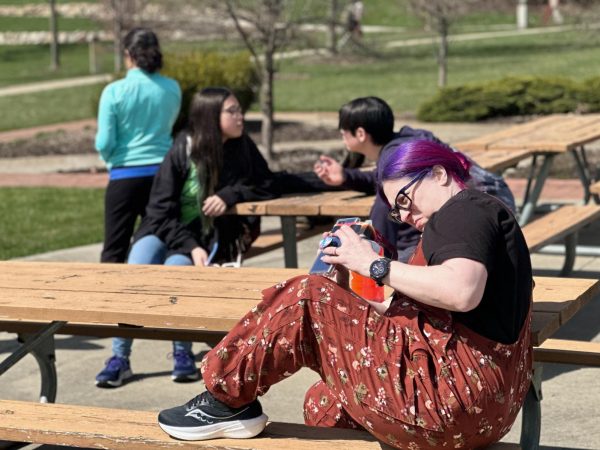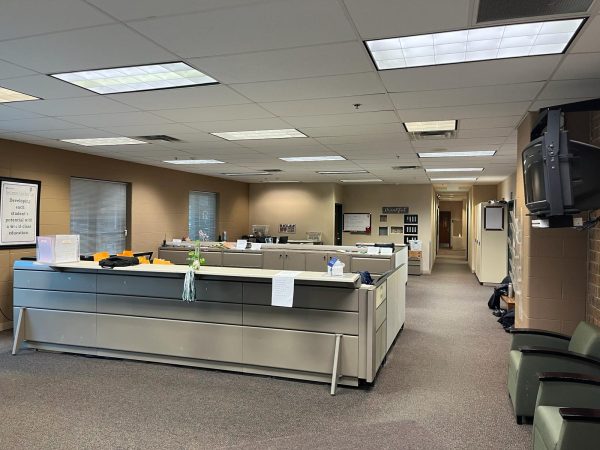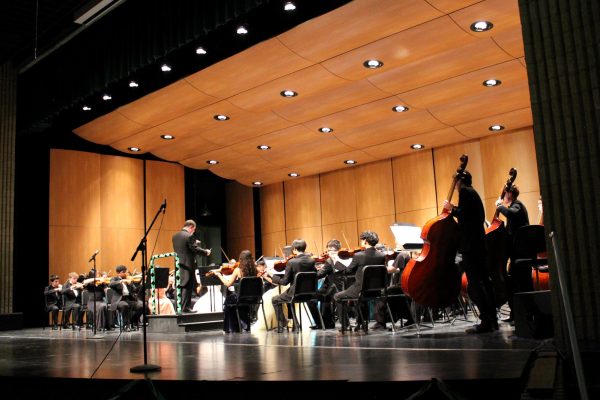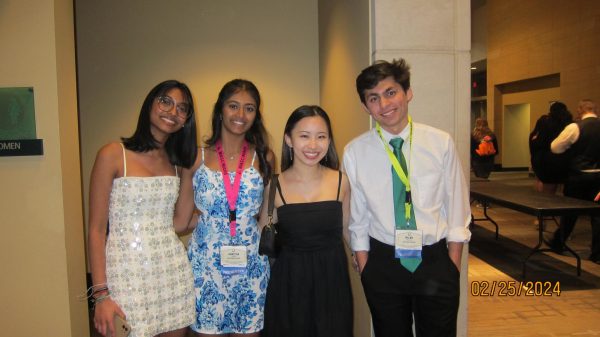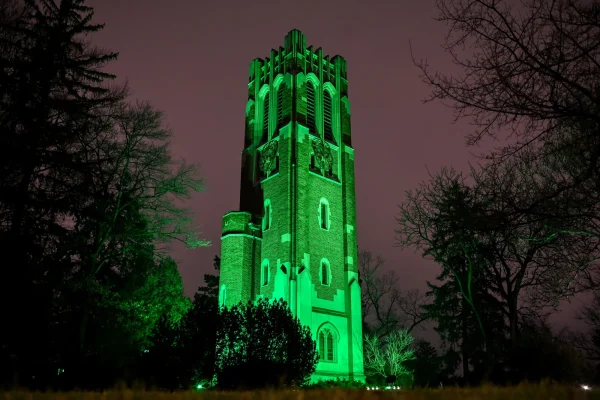Senior Krisha Ramani recaps tenure as youth governor, looks to make a difference
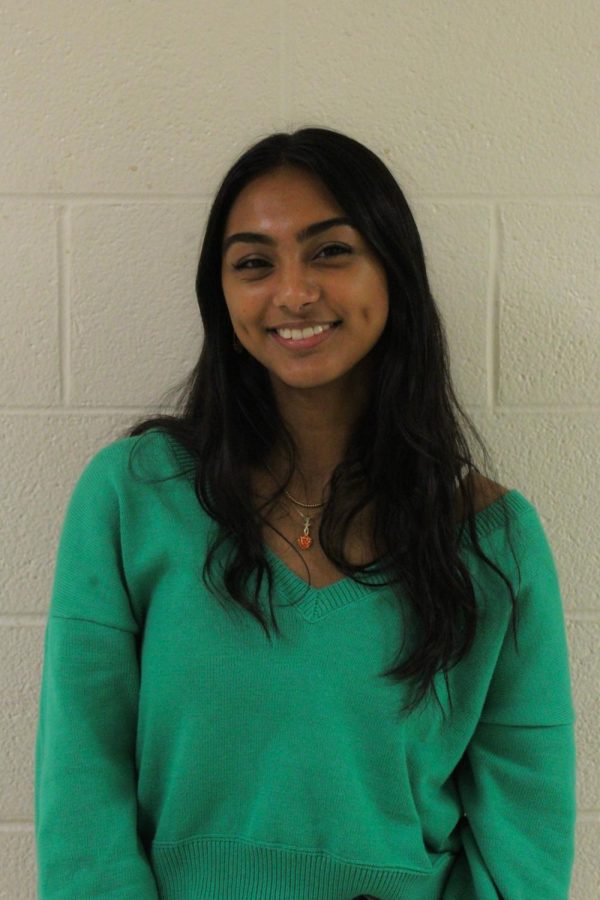
Senior Krisha Ramani serves as Michigan’s Youth Governor, representing high school students, advocating for student voice and interacting with current state-level politicians. “With the rise of social media we’ve seen a lot of young people become informed and engaged much, much earlier than they had been 5-10 years ago. And I would say that that is kind of the key factor that makes now the exigent time for young people to have their voice heard,” Ramani said.
Krisha Ramani, a senior at Novi High School, was elected as YMCA Michigan Youth in Government’s Youth Governor. She was sworn in on March 20, 2022. Her term ends at the closing session of Spring Conference in mid March 2023.
“My primary job as youth governor is to foster connections between the state legislature, the U.S. legislature and high school students,” Ramani said. “We hold events with the representatives and senators, and we also have gone to D.C. in the past to represent Michigan students.”
Ramani and Youth in Government’s other governor, George Ian Earl plan two conferences, fall and spring, for more than 1,500 Youth in Government students. Earl is a senior at Sturgis High School.
“Our main goal is to promote collaboration and community within the program, so we talk a lot to delegation leaders from each high school delegation, which are essentially the officers of each of the [respective] clubs,” Ramani said. “We also try to get out to those high schools and talk to them just to ask people what they want out of the conference; what they’re looking to change, what they’re looking to keep.”
Ramani has also had several opportunities to speak with current legislators and develop a relationship with them. Novi High hosted a roundtable with Governor Whitmer earlier this year, in which Ramani and Whitmer were seated next to one another and answered questions from the community.
“I think the most important thing that I’ve learned is the importance of a good community when
you enter into politics. I think it’s really easy to read about politics, in textbooks and like, think you understand it, but unless you get into the role of a legislative legislator or the role of a press editor in Lansing, or the role of a lobbyist in Lansing, you kind of don’t understand the minute detail that goes into lawmaking because a lot of it is relationship based and a lot of the laws that are created today are citizen-led,” Ramani said.
She said she hopes students gain an understanding of all of the bipartisan work that is done in the legislature.
“A lot of the things that are said about the U.S. legislature are being said because they make good media. They make good news. There is a lot of bipartisan work that is going on in the legislature,” she said. “And likewise, the Michigan legislature is even better at that bipartisan work. [Democrats and Republicans work on] basic policy issues that affect every Michigander in the state.”
Ramani said she believes students are the future of politics and understanding politics can lead to increased student voice and influence.
“I think it is really important for people that are getting decisions made for them to have a say in the decisions that are being made,” she said. “And I think a lot of people don’t recognize that 16, 17 and 18 year olds are capable of having that voice, and with social media we’ve seen a lot of young people become informed and engaged much, much earlier than they had been 5-10 years ago. And I would say that that is kind of the key factor that makes now the exigent time for young people to have their voice heard.”
Ramani didn’t always feel comfortable with her voice being heard. She said her experiences in high school have helped with her public speaking.
“I would not even talk to people in elementary school, it was so bad,” she said. “Like, I would be so awkward. But I think with clubs like Debate, DECA, you’re kind of forced to put yourself out there and it’s really helped me, especially with my on the fly speaking.
“Five years ago, I could not, for the life of me, come up with a coherent answer to a question. If you asked me a question I would not give an answer. I would just stay silent.”
In the future, she plans to go into business and politics.
“I think that there’s a giant intersection between the two; obviously economic policy is a no-brainer,” Ramani said. “But along with that, I think we have the power to increase voter turnout in our country through marketing campaigns and messaging campaigns that can be run through these new socially conscious, socially aware businesses.”
Check the February Edition of Novi Today for an adapted version of this article.
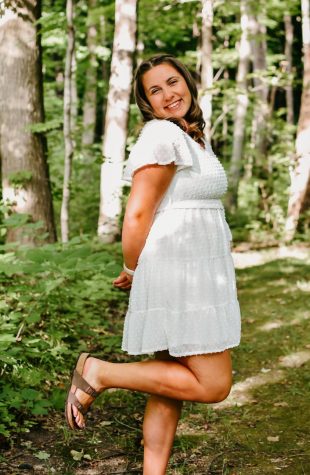
Makayla Stewart is a senior and this is her fourth semester in journalism and her third semester as an Editor-in-Chief. When she’s not in the throwing...


